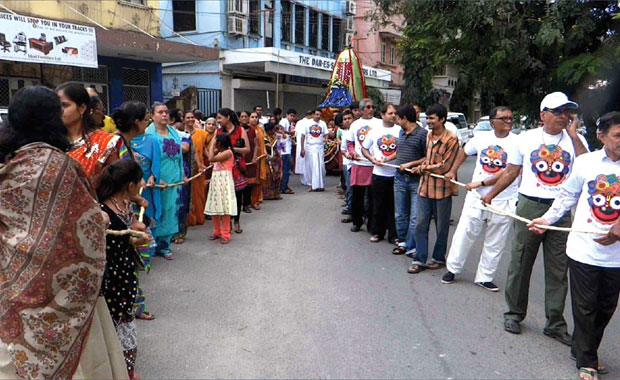Asians in Tanzania: Saboteurs or Saviors?
In its heyday, Tanzania had more than 150,000 Asians but their numbers dwindled due to mass emigration. In 1994 there were 50,000 in the Tanzania mainland and 4,000 in Zanzibar. Today, Tanzania has around 40,000 Asians
Apart from their contribution to Tanzania’s economic and social development, Asians have even participated in advancing local aspirations for independence. The names of Tanzania’s Asians ring out like a roll call of millionaires who have helped to put the country on the world map of economic successes. Businessman Mohammed Dewji is the first Asian in modern-day Tanzania to be featured on the cover of the July 2013 issue of the prestigious Forbes magazine with a headline “100 Hours a Week; $85 million a year.”Dewji, popularly known as ‘Mo’ is a businessman, philanthropist and politician who has built his family-run business in Tanzania from a mere $30 million to $1.1 billion in 12 years. Mo said that when he joined Mohammed Enterprise Tanzania (METL) in 1999, its annual revenue stood at US$26 million. With a projected $1 billion turnover in 2013, METL employs 24,000 people - 5% of Tanzania’s formal employment sector - in a corporation involved in trading, manufacturing, agriculture, financial services, real estate, distribution and telecommunications. METL’s revenue contributes just over 3% of Tanzania’s GDP. “In agriculture, METL is the largest landowner in Tanzania with over 600,000 hectares to its name. In textiles, we are the largest textile manufacturers in sub-Saharan Africa,” he said. The illustrious Karimjee family has lived in Tanzania for 195 years and are pioneers of the Asian community. In 1818 Jivanjee Buddhabhoy, the son of Buddhabhoy Noormuhammed, a small scale hardware merchant, from Mandvi in Kutch, arrived in Zanzibar and set up a small trading firm which was to become one of the largest conglomerates in East Africa. Mr Buddhabhoy gave his business to his three sons - Pirbhoy, Karimjee and Esmailjee. The brothers separated and in 1861 Karimjee established his own enterprise exporting commodities including ivory, copra, groundnuts, cereals, beeswax and cloves from Zanzibar and the East African mainland to India. The business was later handed over to his three grandsons who managed it very successfully. By the time Karimjee died in 1898, the company had a presence in Europe.Foundations for a massive expansion were laid after the company moved from Zanzibar to Dar es Salaam in 1943.Aside from business, the family also built and donated community schools, gymkhanas, medical facilities for the poor. Its philanthropy and community service was recognized when the British Government bestowed knighthoods on Yusufali and Tayabali.Yusufali’s son Abdulkarim was the Mayor of Dar es Salaam and speaker of the Tanzanian Parliament. Many of the family’s properties were expropriated in post-revolution Zanzibar and during Tanzania’s nationalisation. Their business empire saw tough times between 1964 and 1990 but their fortunes have bounced back with increasing dividends. Today, Hatim Karimjee, the descendent of this family, holds the reins of the business empire which continues to grow. He is also the past District Governor of the Rotary Club at Oyster Bay, an organisation that is known for its charity work. The list of this renowned family’s charitable deeds is long and impressive; something that even President Jakaya Kikwete noted when he launched Hatim Karimjee’s book, The Karimjee Jivanjee Family - Merchant Princes of East Africa.The Karimjee Jivanjee family reflects triumph over hardship of the Tanzanian Asians in general. They helped transform a poor region into today’s East Africa.The pioneering Late Keshavji Jethabhai Chande left Gujarat, first setting foot in Kenya in the early 1920s and quickly moved to Tanzania where he owned a shop selling consumer goods and fuel in Bukene village. The family later established a rice and maize flour milling and oil crushing business. His son Jayantilal Keshavji Chande (Andy or JK) took over the family business in his 20s and has been active in social, political and business leader for half a century. He held important positions as a member of the Governor’s Executive Council (Cabinet) and the National Assembly until independence. The then Prime Minister Julius Nyerere offered him an electoral constituency but he turned it down to concentrate on the family business.The family is among the most important architects in developing Tanzania’s milling trade. Their business, Chande Industries, was nationalised in 1967 by President Nyerere under the Arusha Declaration when thousands of Asian properties and businesses were expropriated. Smarting from their losses many Asians left Tanzania, JK ‘Andy’ Chande stayed on without any feelings of rancour. The Chande family’s private sector business and eight similar firms were turned into a Government parastatal, National Milling Corporation (NMC).Nyerere appointed him CEO and General Manager of NMC because of his expertise and knowledge. He worked full time for 35 years and established himself as a shrewd businessman and a highly capable manager.
JK has been the director 25 companies spanning the whole spectrum of national life from banking to agriculture. He was also involved with Government corporations - Tanzania Tourist Corporation and East African Harbours Corporation. He held many prestigious positions in Tanzania and internationally, including London-based Commonwealth bodies. He also served deprived Tanzanians through voluntary and charitable sectors.
— To be continued











Comments.